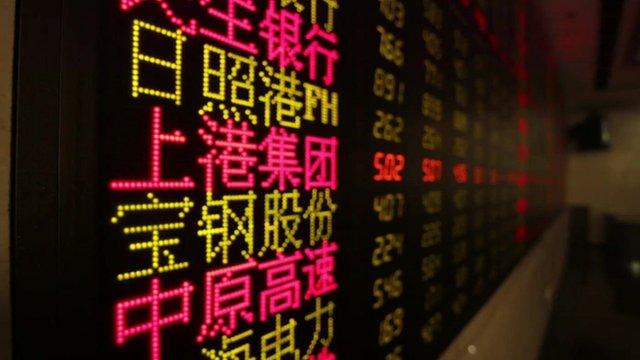Why the volatility in Chinese markets?
- Published
The colour red symbolises good luck or happiness in China
China's stock markets have lost more than 30% of their value since mid-June, a worrying statistic for investors and the government.
On Wednesday 8 July, a stock market index called the Shanghai Composite, which is regarded as a benchmark and an indicator for all share movements in China, fell as much as 8%, leading some analysts to call the trading day Black Wednesday.
Earlier this year, however, China's share market had been one of the best performing in Asia - if not the world.

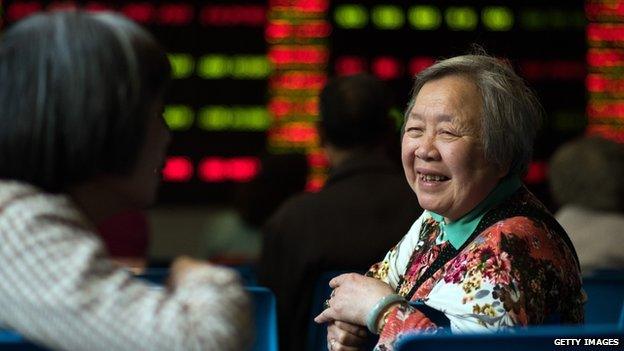
More than 80% of people who invest in China's stock market are so-called "mom and pop" investors
Why did prices initially rise in China?
More and more investors piling into the market, often using borrowed money, pushed share prices up 150% between June 2014 and June 2015.
Today, about 85% of investors are not finance professionals but individuals who were spurred on by government policies that encouraged investment in the markets.
Since 2010 it's been easier to borrow money to invest - so-called margin financing. And that made it easier for less-wealthy people to get involved.
Investment, and talking about investment, has become a pastime for millions of people.
But analysts widely agree there has been a lot of naivety, with a belief the markets could only go up and up.

What's causing the fall?
Just as investors followed their friends and family into the stock market - now they're following them out. That herd mentality can exaggerate market moves very swiftly.
Small investors "are by their nature enthused by momentum", says market specialist Chris Weston from IG Markets. "If the market is rallying, they feel like they need to be involved on fear of missing out. That momentum is now headed sharply lower and so they want out."
Meanwhile long-term investors who have been in the market for more than a year are likely to still be sitting on profits and so as things are getting rocky, some are selling.

Does the fall reflect deeper problems in the Chinese economy?
Many analysts say this is a correction and that shares have been overvalued for a long time.
There does not seem to be any correlation between this crash and the health of the wider economy.
The gains in Chinese stocks last year didn't reflect economic improvement. China has, in fact, been slowing over the past 12 months.
So unlike earlier Chinese market crashes, notably in 2008 when the economy slowed, this seems to be linked directly to issues around the stock market.

China's stock crash - in 60 seconds
Will the stock market crisis spread to the wider economy?
It could. If it turns out that Chinese investors have been putting their money into risky, poorly regulated investments there could be a spill over effect, just as the US mortgage market collapse caused a major financial crisis in 2007-08.
But as a proportion of the Chinese economy, stocks are not especially big - unlike mortgages in the US.
Stock market investment is still a largely urban phenomenon in China and so estimates suggest the current crisis affects just 15% of households directly.

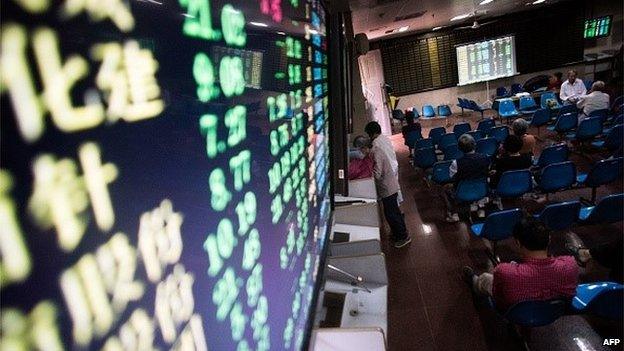
Brokerages have been lent on by the government to help stabilise the market
What is the government doing to prop up the markets?
China's regulators have barred investors holding stakes of more than 5% from selling their shares for the next six months.
Major Chinese brokerages have pledged to buy stocks to help stabilise the market.
Share flotations - or initial public offerings - have been suspended because they usually divert funds from existing stocks, pushing prices down.
And China's central bank has said it will inject money into a state-owned company that finances margin trading - a way of investing whereby the investor leaves a deposit with a broker rather than pay the full amount of the investment - to help people buy more shares.

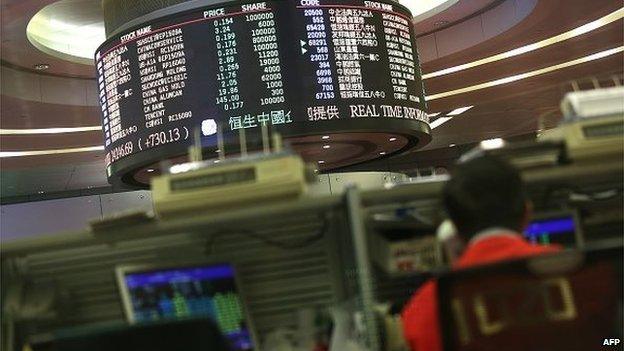
The volatility has spilled over into Hong Kong shares
And is that working?
It didn't seem to be. Until Wednesday whatever the government did, share prices just kept falling.
The market had a better day on Thursday, however, which could be a sign that the Chinese government's measures are starting to have an impact.

Should the government be worried?
Since 2013, the government has been cheering on the stock market and getting investors to buy up shares.
This was seen as national priority - a way to carry out economic reforms in China that were driven by market forces rather than the government.
If these inexperienced investors see the value of their stocks slashed then expect anger. Even if Chinese state broadcasters have been fairly quiet on the subject - social media certainly hasn't.
For Premier Li Keqiang and President Xi Jinping their financial credibility is on the line.

And why has the Hong Kong market been falling too?
With the exception of a few institutional investors, foreigners can't invest directly in mainland Chinese stocks. And so large Chinese companies wanting to tap overseas investment money often have a listing on the Hong Kong market too.
So the volatility in Hong Kong markets is reflecting concern from international investors about the Chinese market.
- Published8 July 2015
- Published7 July 2015
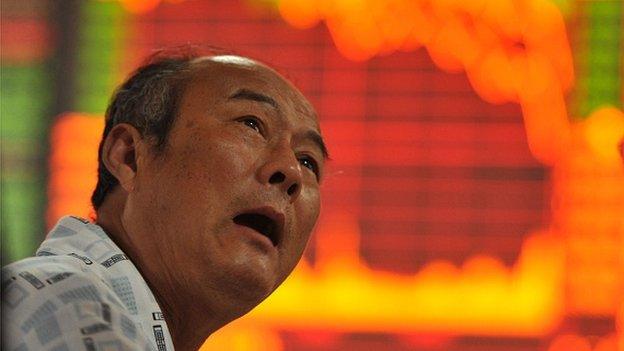
- Published8 July 2015
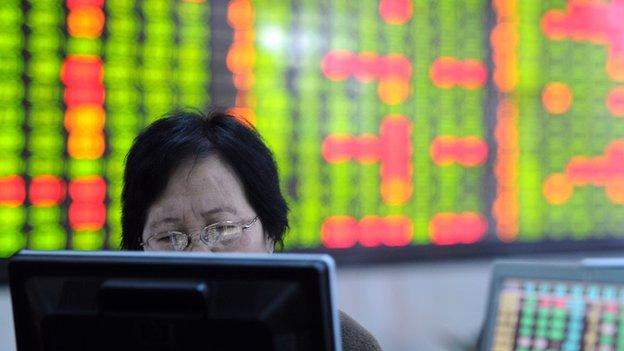
- Published3 July 2015
